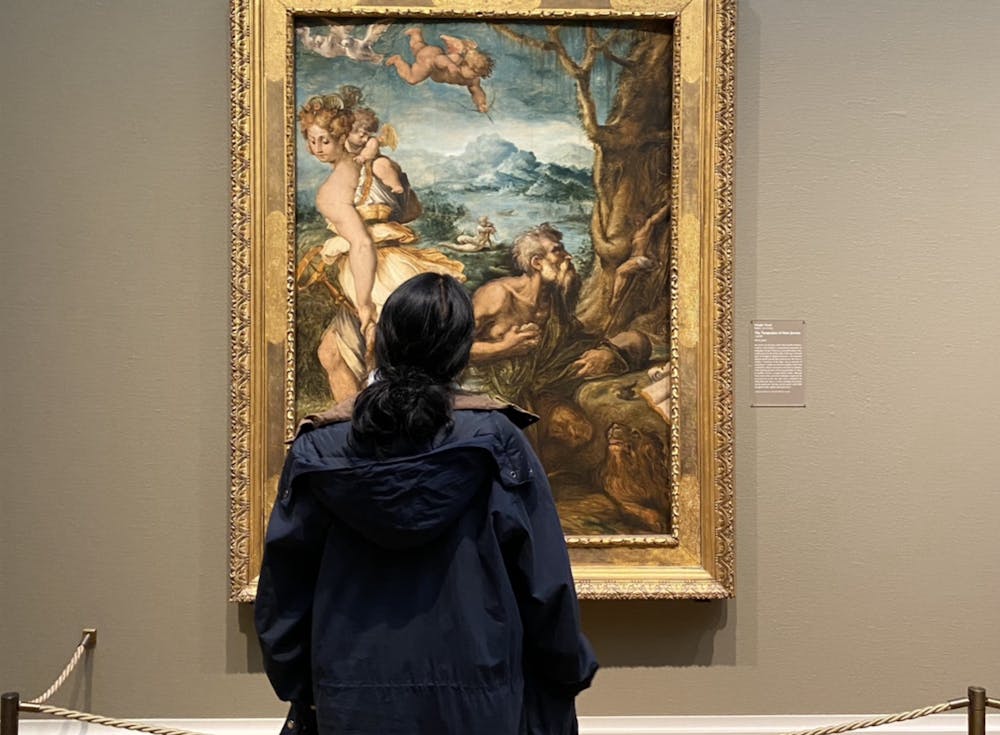
My absolute favorite ‘first day of school' activity was drawing self-portraits. Nothing beats the freedom to scrub down crayons to the stub and draw your favorite outfits and accessories, all for the teacher to hang them up in the hallway.
It was the first day of class, and I distinctly remember scavenging for the light orange crayon to color my face. In my head everyone used that color for their portraits, so it only made sense for me to use it for my own. I finished, and I was overwhelmed with a sense of pride. I had drawn a picture of myself that was, in my opinion, a near-perfect representation.
My teacher was horrified. I will never forget the look on her face: a mix of confusion, pity and a tiny bit of amusement.
“Sweetie that’s not your skin color!”
All I could do was stare at her. She wasn’t wrong by any means, but the weight of what she was saying finally sunk in. I frantically ran to the box of crayons, desperately rummaging through hoards of blues and reds to find a hint of myself in the myriad of colors. As I sat staring at the unrecognizable drawing in my hand, I felt uncomfortable in my skin, invisible.
I have since concluded that you will never find a crayon that perfectly matches my complexion.
I truly believe that there are some things that only people of color can understand. The shame of changing in locker rooms and seeing your hairy arms, the hunt to find a shade of foundation that doesn’t make you look like an effigy, the unbreakable barrier of melanin that serves as a boundary between you and the characters on your TV screen.
I grew up observing billboards promoting Fair & Lovely skin-lightening creams, hearing stories of people rubbing their skin pink in an attempt to bring out a light glow and facing a constant berating from self-hating aunties to “stay out of the sun”.
It felt impossible to escape the projects of colorism around me. The realization that you are inherently undesirable because of the color of your skin comes with an oddly specific feeling. It’s as if there’s a layer of film others have to peel past in order to respect me.
The day I stumbled upon the #UnfairAndLovely movement on social media, something in me awoke. I was scrolling through pages of strong and unapologetic women of color that looked like me. It was as if I had finally found the color I was searching for in the crayon box, a sense of belonging.
For far too long, people of color have been silenced, as much by society as by ourselves. Invisible in government, media and entertainment, I think many forget the richly diverse potential of people of color to feel empowered. The statement was beautiful, a bold challenge to the “Fair & Lovely” culture I grew up watching.
Movements like #UnfairAndLovely are perfect examples of how young people of color use powerful tools to provide a platform for sharing experiences, starting meaningful conversations and harnessing the power that has systematically been kept from us.
I sometimes forget the lasting impact of constantly consuming media that lacks diverse representation. I used to spend hours staring at myself in mirrors or cameras, pulling at my skin and hair to somehow erase the unruly wavy mane given to me by my mother and the eternal summer tan I share with my father. While I’m lucky to have grown up in a family that made me feel beautiful, they couldn’t stop me from developing an aversion to summer days by the pool.
When you’re told you’re ugly, you start to believe it. When you’re told you’re powerless, it slowly comes true. #UnfairAndLovely made me realize that when it’s time to change attitudes and embrace yourself, strength in numbers is what will see you through. It’s such a simple hashtag, but in a society that profits off of people’s collective sense of inferiority, it can become a powerful symbol of change.
Finding belonging is only the first step in a journey that I have to continue to take. I may be unfair and lovely and everything in between, and perhaps I won’t ever find a crayon that can embody the color of coffee-dipped gold and raw brown sugar and sun-baked honey. But I am finally coming to understand how that’s okay because, beyond my skin, I am more. I want to change the world because of my identity, not despite it.
Aashi Mendpara is a sophomore from Orlando, Fla. studying Neuroscience and Anthropology.

















